Athena, one of the most celebrated and worshipped Greek Goddesses, was associated with wisdom, courage, inspiration, civilization, and law-justice.
Like every Greek deity, she, too, had numerous cults and temples dedicated to her. The greek worshipped her and her sacred symbols, owl, spear, and aegis.
Athena lived at Mount Olympus, the center of power that existed in Ancient Greece. She had numerous interesting facts associated with her. However, the most interesting has to be her cursing Medusa for turning her hair into serpents.
Other interesting facts are listed in this article with details.
10. Athena cursed Medusa for turning her hair into serpents
Content
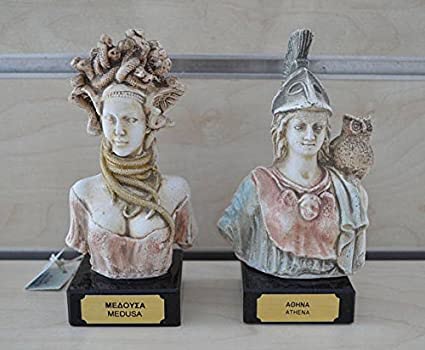
Medusa, the priest of Athena, served at the temple of Athena in Athens. She was a beautiful virgin priest who was later turned into an evil and monstrous character.
The Greeks came to the temple of Athen to admire Medusa for her beauty. She was claimed more beautiful than Athena, which angered the Goddess. Even the underwater god, Poseidon, could not resist but fall for Medusa’s beauty.
Poseidon thought of taking Medusa away from Athena and keeping her with him. He chased Medusa and raped her at the temple of Athena.
Athena was furious at the incident as she had kept Medusa from being a virgin priest. The losing of virginity angered Athena, and in return, she cursed her to be transformed into a hideous monster. Also, her hair was turned into serpents instead of hair.
9. Panathenaia was a festival held in Athena’s honour
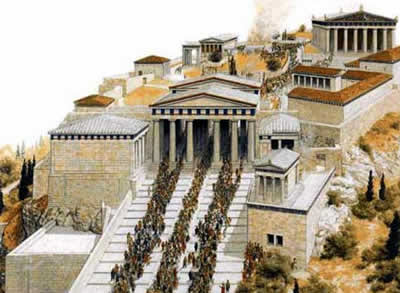
The city of Athens was named after the Greek Goddess Athena to honor her as the city’s patron. The Athenians worshipped her for knowledge, war strategy, and beauty.
Numerous cults and temples were built to honor her, and also numerous festivals were dedicated to her. Panathenaia, the most renowned festival dedicated to Athena, was held every four-year.
Various athletic competitions were organized, along with the prize-giving ceremony and cultural gatherings. However, the most awaited event of this festival was the performance of a priest of Athens presenting Athena’s famous statue.
The priest wore new clothes called peplos that would match the Goddess attributes as Athena. The special cloth was worn to celebrate her being the goddess of weaving.
8. The owl is Athena’s sacred bird
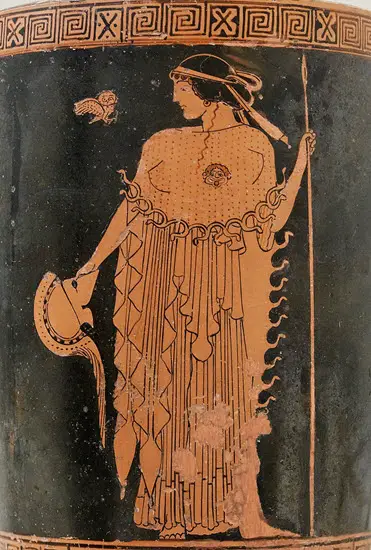
The owl, the symbol of wisdom, was the sacred bird that accompanied Athena everywhere she went. The owl would help her fly by keeping her on its shoulders and reaching her to the destination.
Athena would take the help of her sacred bird during nights and wars. During nigh times, the owl would help remove the dark force, whereas, during the wars, it would convert messages to the Greek soldiers assuring them that Athena was on their side.
Athens associated the owl and Athena as the symbol of truth, wisdom, knowledge, and justice. They would depict the image of the owl along with Athena on their art forms.
7. Athena was a patron of Greek heroes
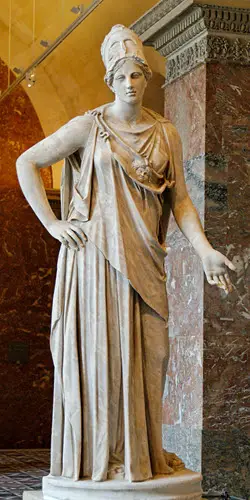
Athena played the role of adviser and helper to great Greek heroes. She guided and helped Argos in building the ship and also helped Perseus to behead Medusa.
She and Hermes, the god of travelers, provided Perseus with many tools for his journey – a bronze shield and an adamantine scythe. The bronze shield was given to view Medusa’s reflection as anyone seeing her with bare eyes would be turned into a stone. At the same time, the scythe was given to behead Medusa.
Athena frequently aided hero Heracles, who was bound to twelve laborers from Hela. She helped him during his labor by giving him a krotala to scare the Stymphalian Birds.
In addition to this, she also helped the Greeks and Athens by providing soldiers during wars and battles.
6. Athena had a major role in igniting the Trojan War
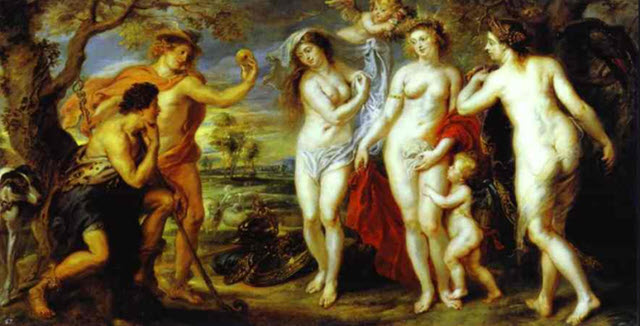
The myth of the Judgement of Paris explains the Trojan War’s start. According to it, Aphrodite, Hera, and Athena claimed themselves to be the fairest of all.
When these three goddesses asked Zeus to tell who was the fairest of all, he assigned the task to Paris, a Trojan prince. The goddesses, to impress him, went for a bath in the spring of Mount Ida and presented themselves in front of him.
Paris saw the three beautiful goddesses, and he could not decide who was the fairest of all. The goddesses began bribing him to make him take their name.
Hera tried by luring him with power over Asia and Europe, while Athena offered him fame and glory on the battlefield.
Aphrodite promised Paris to let him marry the most beautiful woman on the earth. The world’s most beautiful woman was Helen, who was already married to King Menelaus of Sparta.
Paris finally opted for Aphrodite and awarded her with that golden apple. Hera and Athena became angry with Paris’ decision and created chaos resulting in the Trojan War.
5. Athena was one of the three original virgin goddesses
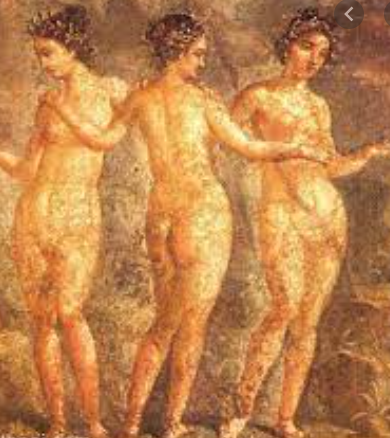
Athena was one of the three goddesses to be listed as the virgin greek goddesses. The other two included Artemis and Hestia.
As per the legend, Hephaestus had tried to rape her but was unable to do so. She was never involved emotionally or physically with anyone.
Her virginity, however, did not limit only to sexual orientation but was a symbol that equaled her with male gods in masculine acts or Warfare.
4. Athena invented the flute, but she never played it
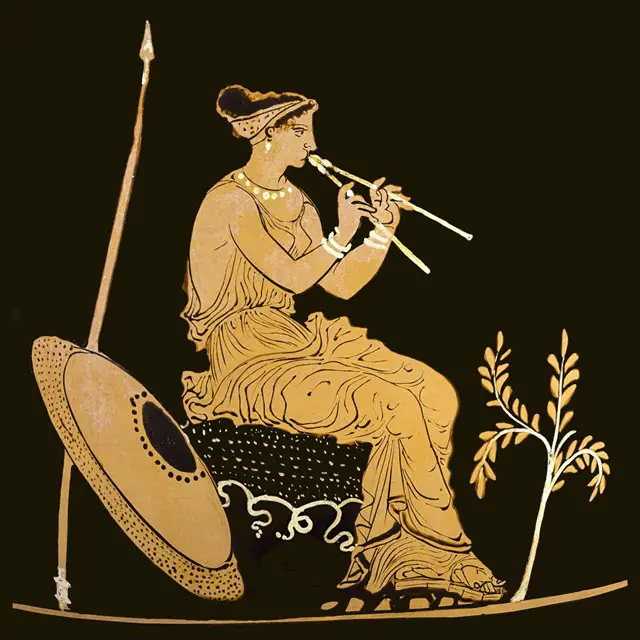
According to “Twelfth Pythian Ode” by Pindar, Athena had invented the “aulos,” a kind of flute. She made it to show Medusa’s sisters’ (Gorgons) lamentations after Perseus had beheaded her.
Though she made the flute, she never used it herself. She found herself very awful as the cheeks would change their shape while blowing at the flute.
She rather threw it away and cursed the flute so that anyone who picked it up would meet an awful death. The satyr Marsyas, unknown about the curse, picked up the flute and tried playing it. He was killed as per the curse.
3. Athen was named after Athena
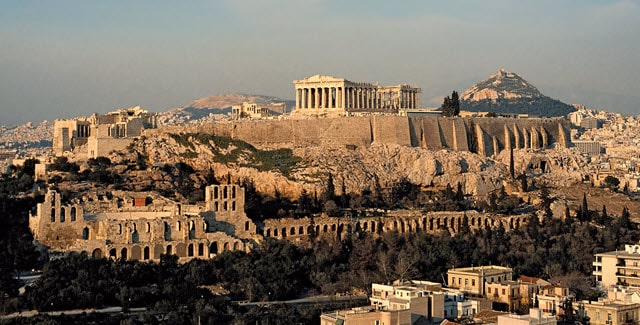
Athena was the patron of many cities across Ancient Greece, including Athens. For Athens’ patronage, Athena and Poseidon had competed with each other. They agreed to give one gift from each to Athenians and decide which gift would be better.
First, Poseidon took out the saltwater by striking his tridents and gave it to Athenians. Athenians had access to trade and water with this gift. Also, it would have helped Athenians to win over the Persians at the battle of Salamis.
However, despite being helpful in other ways, the water could not be used as drinking water due to its saltiness.
Athena offered the first domesticated olive tree from which Athenians could receive food and lightened their house. They could also use it as wood to cook food and fire them to warm the house.
Athenians were happy and impressed with the gifts of Athena and declared her as the patron of Athens. This angered Poseidon, and in return, he challenged Athena to fight.
The fight was also in favor of Athena, as she got victory over Poseidon easily. The victory in the fight and the impressive gifts to Athenians made her the patron of the city of Athens.
2. Athena was the daughter of Zeus produced without a mother
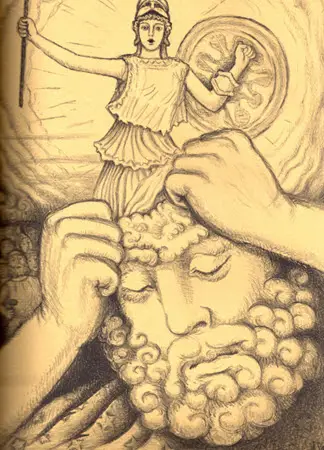
Zeus, the King of Gods, had the power of prophecy. He would oversee the future and decide his doing accordingly. He had overseen the future where he would be overtaken and overpowered by the children born to him.
He had married Metis by that time, and she was impregnated by him. Zeus, in fear of being overpowered by the child born from Metis, swallowed Metis.
The child conceived by Metis gave a severe headache to Zeus, and he, unaware of the reason for the headache, ordered Hephaestus to crack open his head with an ax.
Hephaestus had cracked open Zeus’ head, Athena appeared from Zeus’ head fully grown and dressed in armor for the battle. Zeus, despite the fear, was happy to receive the beautiful daughter with wisdom, handicrafts, and warfare skills. Later, Athena became Zeus’ favorite daughter.
1. Athena is the goddess of handicraft, wisdom, and warfare
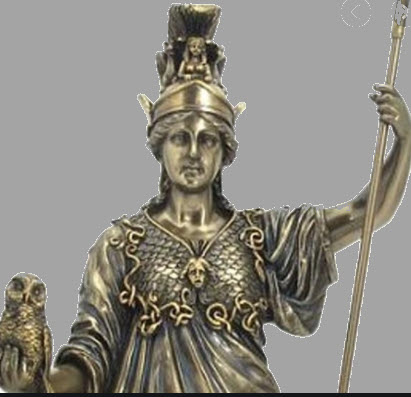
Athena is always depicted with animals such as owls and snakes. Along with that, she also appears with olive trees and the Gorgoneion.
Gorgoneion was a magic pendant showing the head of a mythical creature known as Gorgon in the art portrait. These all symbolize wisdom; thus, Athena is the goddess of wisdom and knowledge.
Legends also believe that Athena received wisdom from her mother, the wisest woman among mortals and gods.
Athena is also associated with spinning and weaving. She is the patron of handicrafts by encouraging others to spread the skill of embroideries. Athena was also a well-skilled warrior.
A spear, shield, lance, helmet, and body armour are her equipment for the battlefield. She had protected many cities in Ancient Greece.
Conclusion
Ancient Greek has supplied several powerful gods and goddesses but Athena was the special goddess who mirrored the male gods in strength.
If I were to keep a single fact about Athena, I would remember Athena as the Lady of Athens; how she won the patronage. Reread the interesting facts about Athena and list out your favourite facts among all.
